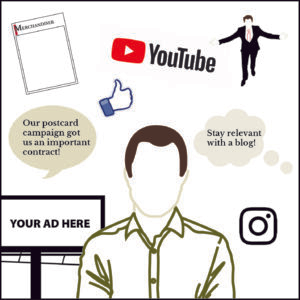In 1855 Ralph Waldo Emerson wrote, “If a man has good corn, or wood, or boards, or pigs to sell, or can make better chairs or knives, crucibles or church organs than anybody else, you will find a broad hard-beaten road to his house, though it be in the woods.”
Over the years this has been boiled down to this pithy statement: “Build a better mousetrap, and the world will beat a path to your door.”
This seems like a simple formula (better product = sales success), but you can probably identify what is missing: how is the world going to find out about the better mousetrap? We could revise that formula this way...











